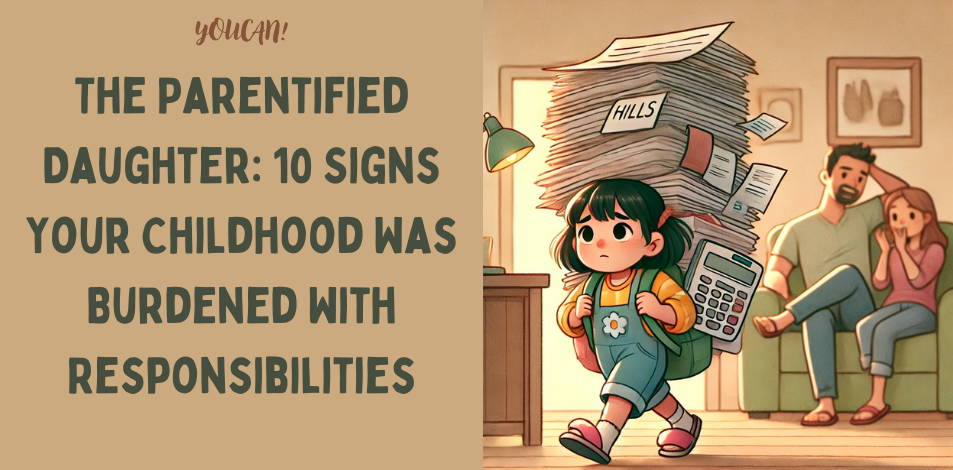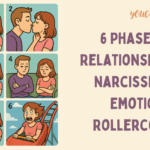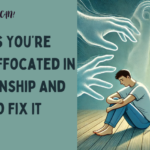
It’s said that girls “grow up too fast,” but for some daughters raised by fathers, this reality is driven by heavy responsibilities to their families, far beyond their years. This phenomenon is known as “parenting.”
This phenomenon occurs when a child is burdened with tasks and emotional support roles that should fall to their parents or guardians. When an eldest daughter raised by fathers takes on these responsibilities early in life, it can profoundly impact her personality and relationships.
If this sounds too real, let’s explore the common signs of a daughter raised by fathers, so you can understand the unique challenges and childhood experiences that continue to impact her adult life.
The Daughter Raised by Parents: Signs You’re Overloaded
- You Feel Overly Responsible and Fear Failure
Do you wake up every day feeling like you’re carrying the weight of the world on your shoulders? As a foster child, you’ve taken over for your parents in things like running the house and caring for your much older siblings. This over-responsibility may have made you feel overly hard on yourself, as if you’d face serious consequences if you failed at something.
Maybe you were the one who made sure dinner was on the table every night, or you took care of your younger siblings while your parents worked or dealt with emotional issues. Now that you’re older, you may still feel like you’re the one responsible for everyone’s well-being, and this can negatively impact you even in adulthood.
- You’re a People Pleaser
Do you often neglect your own interests and prioritize the interests of others? You may have developed an emotional habit of pleasing others to the point where they don’t mind your peace of mind, and you lose yourself in the process.
The caregiver loves to please people, and for fear of disappointing others, they may be tempted to please everyone, only to end up deeply preoccupied with solving other people’s problems.
- You Have Difficulty Setting Boundaries
Do you find it difficult to say “no,” even when you’re exhausted? Setting boundaries may be particularly difficult for you because you’re used to prioritizing others. You may feel guilty or anxious when trying to set boundaries with friends, family, or coworkers, fearing they’ll be upset with you or that you’ll let them down.
- Your Self-Esteem Takes a Hit
Do you have difficulty feeling good about yourself? Constantly focusing on others, such as family members, puts you at risk of losing your self-esteem.
You may have internalized the idea that your value lies in what you can do for others, not in yourself. You may feel unworthy of your job, relationships, endeavors, or anything else in your life because you’ve been trained to believe that your value lies in serving others and nothing more.
- You Have a Deep-Seated Fear of Abandonment
Do you fear that people will leave you if you don’t take care of them? Growing up in foster care may leave you afraid of being left alone if you don’t take control. In relationships, you may find yourself clinging to people or constantly worrying that they will leave you if you stop being the “tough one” or caregiver.
- Your Relationships Are Often Imbalanced
Do you find yourself caring more for your partner or friends than they do for you? It’s common for daughters who were raised to fall into relationships where they are the caregiver because it feels familiar. You may end up in a relationship where you’re always the one giving, supporting, or fixing things, while your partner takes on a more passive role.
- You’re a Perfectionist
Do you force yourself to be perfect in everything you do? As a foster daughter, you may have learned that perfection is the only way to avoid criticism or ensure things don’t fall apart. You may find yourself obsessing over every detail in your professional or personal life, feeling that anything less than perfection isn’t enough, even if it exhausts you.
- You find it difficult to express your feelings
One sign of a foster daughter is that you suppress your emotions. You may have learned to suppress your feelings, prioritizing the needs of others over your own just to maintain stability at home. Even when you’re upset, you may find it difficult to express your feelings, either because you don’t want to burden others or because you’ve learned that your feelings don’t matter as much as theirs.
- Your inability to express emotions causes physical symptoms
Is stress showing in your body? The pressure of raising your daughters as adults can lead to physical symptoms, even if you don’t always associate them with your emotional state.
You may experience frequent stomach issues, headaches, or fatigue, which may be your body’s response to the chronic stress you’ve experienced.
- You Feel Guilt and Resentment
Is it wrong to desire a private life in a world that seems burdened by responsibilities? Being a foster child can feel a certain sense of guilt, especially when you try to focus on your own discomfort with the situation you find yourself in.
One sign of being a foster child is feeling bad about wanting to fulfill your ambitions, or regretting not having the opportunity to be a child without adult responsibilities.
Recognizing these signs can be the first step toward healing from the effects of fostering. Remember, it’s okay to ask for help and prioritize your own needs. You’ve spent a lot of time caring for others, and now it’s time to take care of yourself.
Unique Ways to Recover from Caring for Your Oldest Daughter: As the oldest child, you may have taken on responsibilities far beyond your years. Healing from this experience is possible, and here are four unique ways to help you on your journey:
- Embrace Your Inner Child
Rethink the invisible hierarchies and dominance practices that shape society by engaging in leisure activities you missed as a child. Whether it’s drawing, cycling, or watching cartoons, whatever makes your inner child happy makes them happy. Journal with your inner child, send them letters, and let them talk. - Maintain Boundaries with Family
On “family-free” days, it’s important to care for yourself. Don’t just say “no.” Treat them kindly, take a firm stand, and explain that this is what you need for your mental well-being.
- Try a Self-Parenting Approach
Make a decision to have regular weekly activities that promote holistic growth, such as a Self-Care Sunday. These activities will protect you from feeling neglected and uncared for. Show your self-worth and the love you missed as a child.
- Connect with women like you
Find support groups, whether in person or online, to share what you’re going through with others. Know that others have gone through similar experiences and emerged stronger. You can even start your own support group or book club if neither is available.
By incorporating these strategies, you can reclaim your




